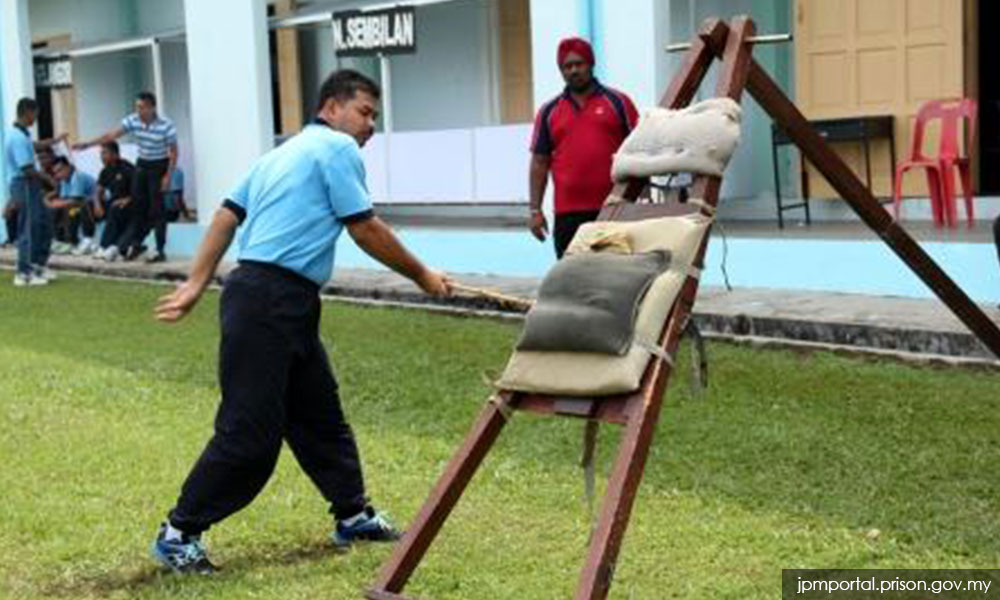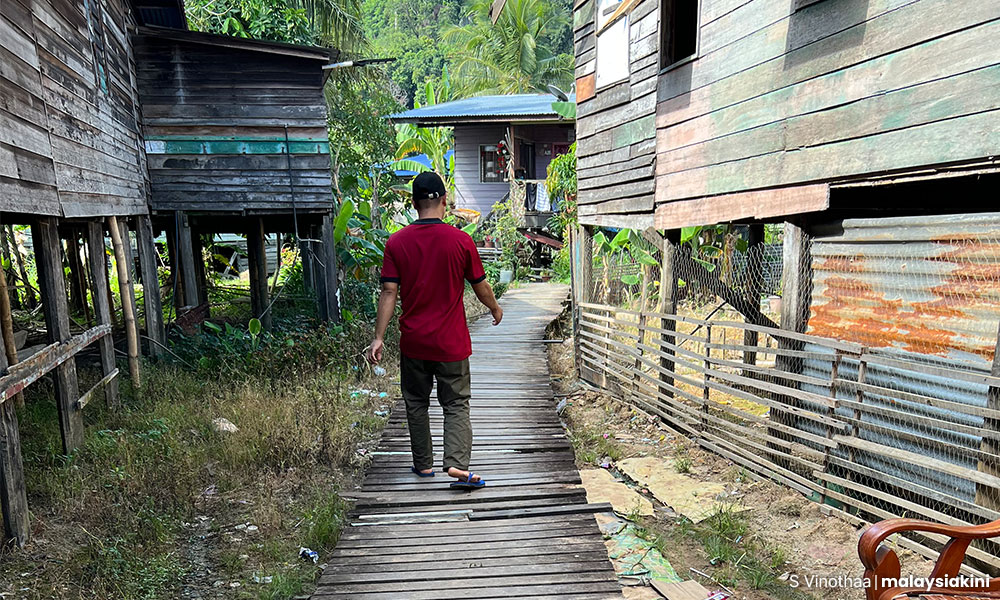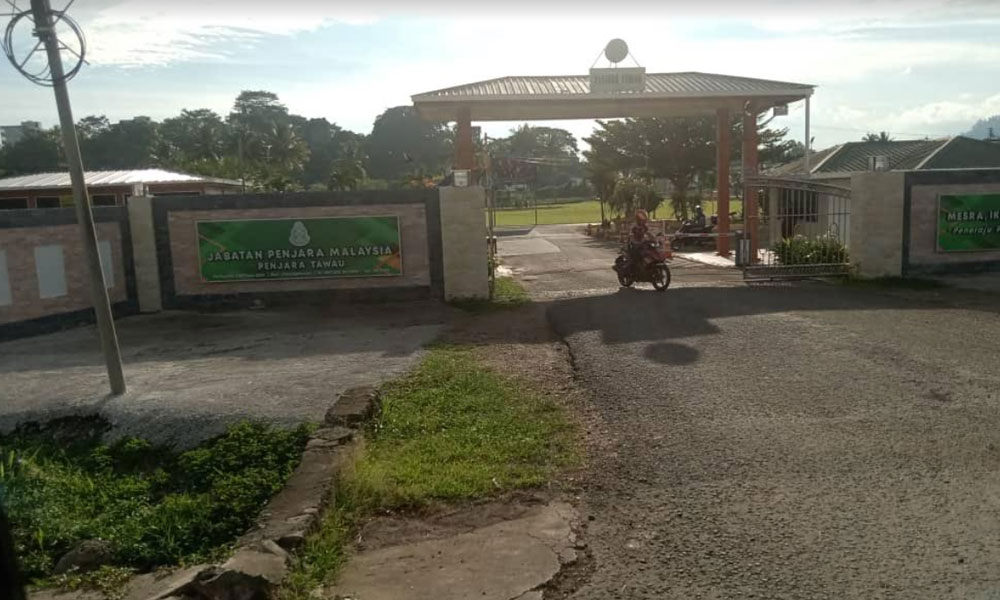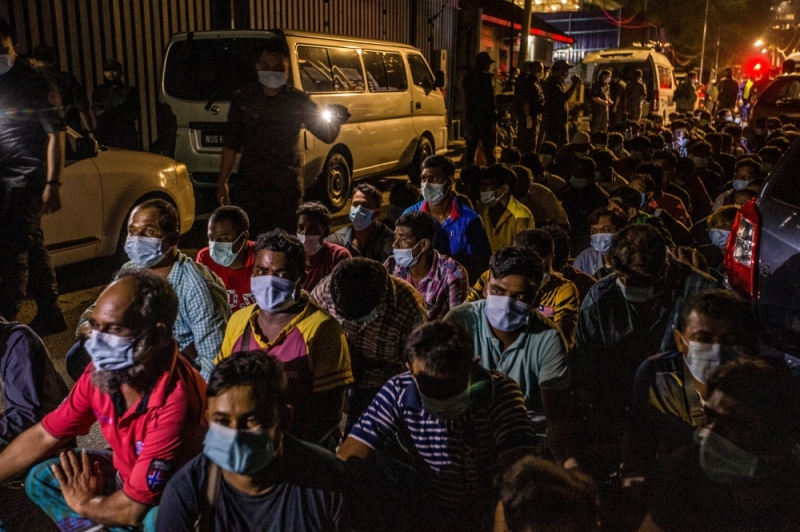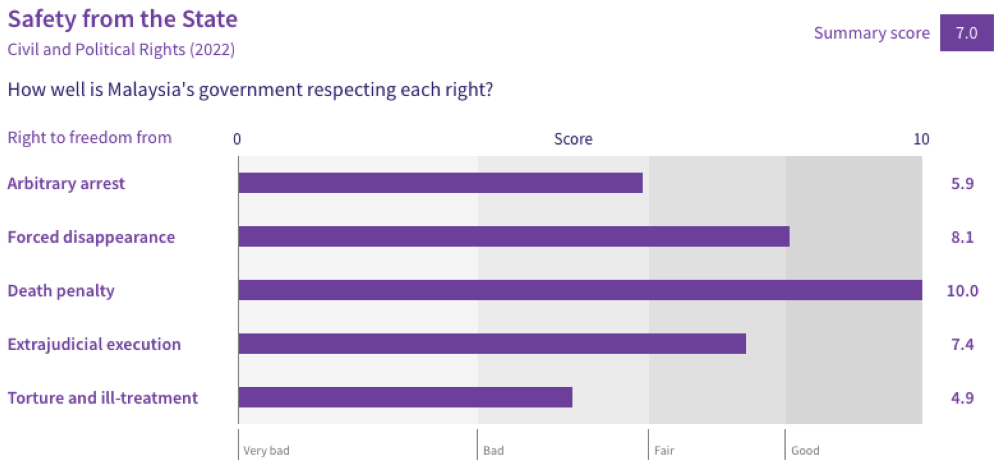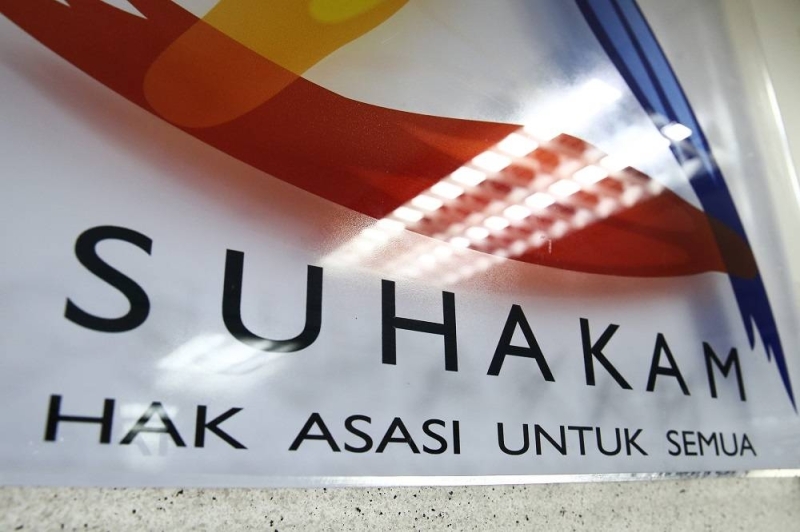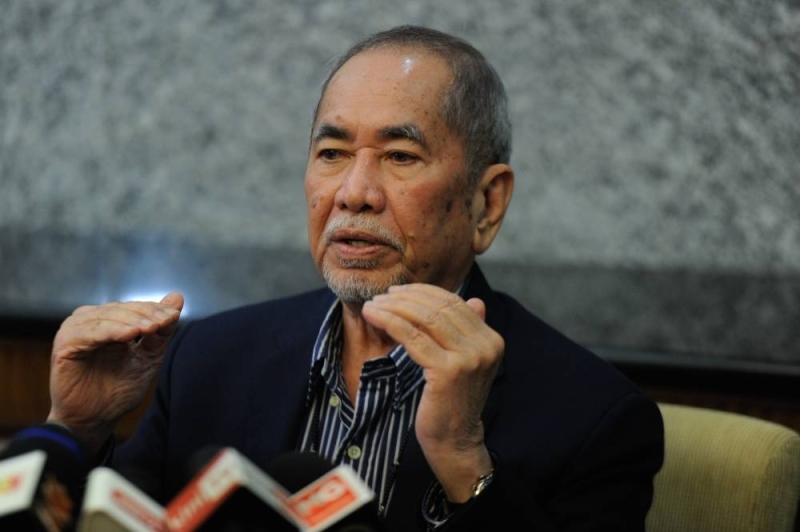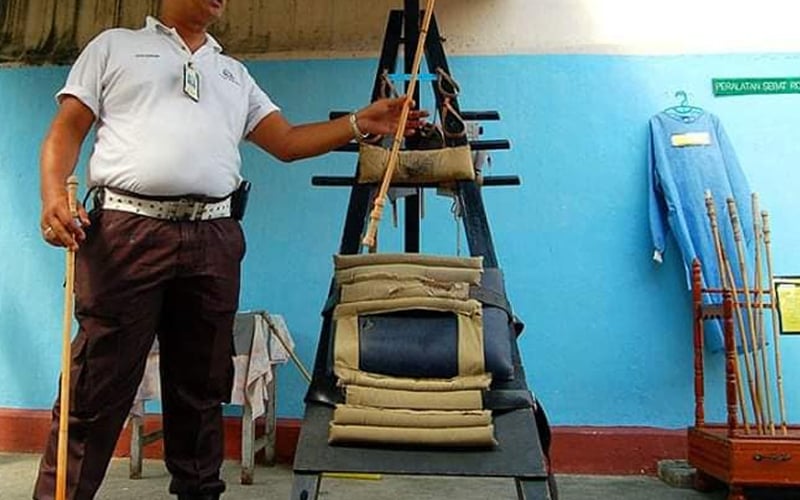How do political parties CHOOSE candidates who will representing the party in Elections.
Responding to the protests, Anwar said that he has the final say on the candidate list."Never mind, people do make mistakes. Listen, listen. The position of the party is what is said by the president.
Anwar's response raises questions - Anwar said that he has the final say on the candidate list. He did not say that the party leadership has the final say. He did not say that the Party leadership together with State and relevant Division leadership decides.
Does it not sound a bit FEUDALISTIC? Is that also same in UMNO and the other BN-PH parties?
Who should have a say in the CANDIDATES standing for elections?
- The people in the area
- The party members in the Branch, Division of the constituency contested
- The State leadership, and the National Leadership(not just the President or the principal office Bearers)
## It is best that persons wanting to contest submit the candidature way in advance, and it should be publicized. This gives an opportunity of people, especially the party membership in the area, to be able to submit comments or even reasons why a particular candidate ought not be chosen - not all past wrongdoings may be known to people or the leadership. This vetting process helps to placement of the best, cleanest and most competent candidate to be forwarded. This will be a better democratic process...rather than President choosing.
### Why don't candidates also be required to the people and get maybe about 1,000 sign petitions from the people stating they support so and so standing for elections. This maybe not an indication that they must vote, as their decision on voting ultimately relies on the other candidates nominated after nomination day.
Another bad trend is that parties seem to name candidates at the 11th hour, sometimes dropping incumbents or other potentially better candidates.
- If named earlier, then it gives other hopefuls choice > to appeal the final decision, or even decide to contest themselves as maybe an independent candidate. After all, the 'disappointment' can also arise because membership of the area were not consulted or part of the decision making process.
The 10 Million Ringgit bond agreements
Why is there such a BOND more so after the anti-party hopping law is in place? Now, if a MP who stood as a party candidate leaves the party, he loses his seat by law, and then there will be a by-elections to choose a NEW MP. Likewise, an Independent MP that joins a political party, then this will result in a by-elections. So, is there any necessity to sign a BOND anymore?
Did not PH-led Selangor enact the anti-hopping law for the State Legislative Assembly? If not, WHY?
The wordings of such BOND must be transparent - Hopefully, it does not include 'must OBEY Anwar or the President'.
Clauses like 'Must not speak against the Selangor State government or party decisions' should not be there as they are going to be elected as peoples' representatives not party representative. So, they should represent the people and be free to speak for the people even it is something that opposes what the President or the party says or do.
Some ADUNs will not be part of the State Cabinet or State Exco, and so their role will be as 'government backbenchers', and as such they must be free to challenge or criticize or express their OWN views on things the State Executive says or does. Likewise, they should be free to VOTE as they deem fit - not always having to listen to the Party's orders on how to Vote. This is the 'check and balance' role that non-State Cabinet members have to play in the State Legislative Assemblies.
Does the BOND say that they have to simply obey what the Party or the party President says - HENCE, no freedom of expression or freedom of opinion, and no freedom to vote according to what they feel is the best interest of the people they represent.
HENCE, disclose the BOND that PKR made its candidates sign.
BOND AMOUNT - RM10 Million is absurd. In Malaysia, the maximum amount of monies that a candidate for MP is allowed to spend is RM250,000. Is PKR now admitting that they spend RM10 million - hence, breaking our election law?
An MP's income (plus allowances) is about RM40,000. So, is the BOND trying to recover what the MP earned before the MP(in this case ADUN) leaves the party? If yes, should it be the amount earned until he/she leaves? But then, it is NOT the party that pays MP/ADUNs - BUT the State or the peoples' monies.
Should such BONDs be made illegal? After all, will such bonds simply 'enslave' a MP or ADUN to the party - and that certainly must be seen as UNDEMOCRATIC.
EXAMPLE - At the point of election, I may fully support the party and its various stance. But, then, mid-stream there may be changes in position - which I cannot accept - so bad, that I may be forced to leave the party. Example, I supported because the party's position was Local Council Elections, Abolition of Sedition Act- Detention Without Trial Laws - and other bad laws > then the party or the President or the National leadership changes its position to keep those BAD LAWS and even use them. This may be a fundamental issue - and, in the worse case scenario, I may choose to object openly and vote as it is right(according to me) >>> worse worse case is to leave the party - to protect MY REPUTATION and Credibility.
Does the BOND contain the fundamental position of the party - or is it simply I allow you to stand and you will pay RM10 million if you leave.
What do you think of an EMPLOYMENT AGREEMENT that says if you leave, you pay RM10 million??
I believe Candidates who had to sign BONDs with their party MAY NOT MAKE the best choices. They are now 'slaves of the party' - and as such may not be the BEST peoples' representative...
Parties must evaluate and choose the best candidates smartly based on trust- no BOND needed. If there is a BOND - it means that the party itself does not trust their OWN candidate - hence requiring them to sign a maybe RM10 million BOND?
Disappointing, says Kota Anggerik voter who interrupted Anwar for naming Najwan to recontest seat
Shanker Sundaram says PKR should have sent a clear message that it does not tolerate racism.
A voter in the Selangor state constituency of Kota Anggerik who interrupted Prime Minister Anwar Ibrahim while announcing PKR candidates for the coming state polls has expressed disappointment with his dismissal of protests against Najwan Halimi over a recent racist remark the latter made about the Indian community.
Shanker Sundaram and his brother protested when Anwar announced Najwan was being fielded for Kota Anggerik, a state seat in Shah Alam.
Responding to the protests, Anwar said that he has the final say on the candidate list.
"Never mind, people do make mistakes. Listen, listen. The position of the party is what is said by the president. We are here to serve the Malays, the Chinese, the Indians, the Dayak and the Kadazans," he said tersely, as he continued to read other candidate names.
Shanker said the prime minister's response raised "concerns about his ability to address racism within his party and among the candidates".
"Anwar merely brushed off Najwan's derogatory remarks as a 'mistake', insisting on his absolute discretion in candidate selection. I condemn the failure on Anwar's part to uphold his commitment to supporting the Indian community," Shanker wrote hours after the event last night.
On July 13, Najwan, responding to a news report on the socialist party PSM that was shared in a PKR WhatsApp group chat, commented "Parti India Estet".
A screenshot of the chat soon went viral, drawing condemnation for its racial overtones.
Najwan, who is the deputy chief of Shah Alam PKR Youth, later apologised, saying he had been ignorant about PSM.
Shanker said Najwan's comments should never be tolerated by the PKR leadership.
"As a resident of Kota Anggerik who has voted for many terms, I firmly believe that we must take a stand against any form of discrimination or insult towards any community.
"It is crucial to send a clear message that we will not condone such
disrespectful behaviour from anyone, especially from those seeking
public office," he added - Malaysia Now, 26/7/2023
'Hidden hands' behind candidates' selection: Ramasamy
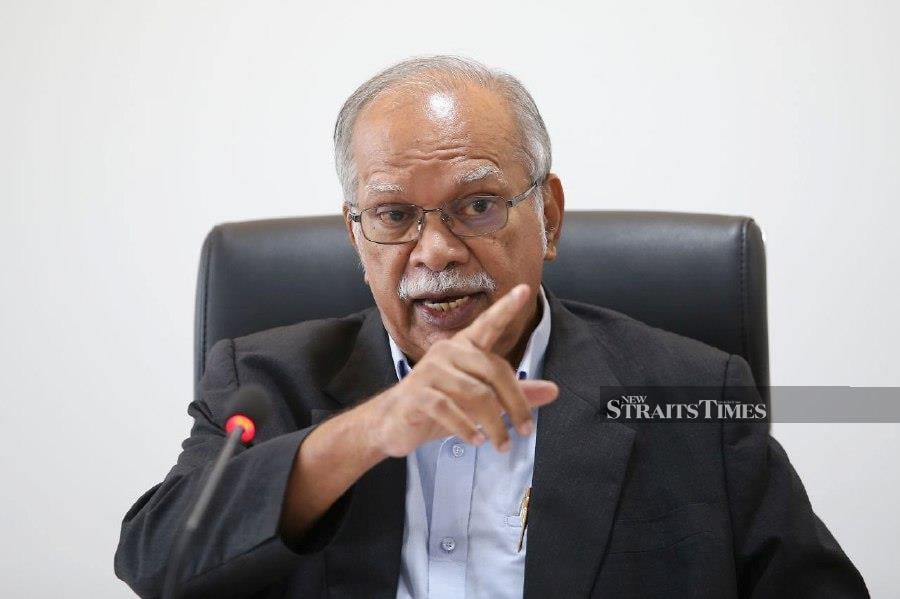
GEORGE TOWN: Caretaker Deputy Chief Minister II Dr P. Ramasamy has alleged "hidden hands" behind the selection of candidates for the party to be fielded in the upcoming state election.
The three-term lawmaker said it was obvious that all those who were in support of caretaker Chief Minister Chow Kon Yeow were slashed from the candidates' list as announced by party secretary-general Anthony Loke yesterday.
He said the reason given by the top party leadership to axe several of the incumbents was unacceptable.
"For me, and state executive council members Phee Boon Poh and Chong Eng, I can accept that we are dropped. But why axe the other performing excos like Yeoh Soon Hin and Soon Lip Chee, as well as Bagan Dalam assemblyman M. Satees? You say it is about rejuvenation. These are young people who are performing.
"Is it because they are supportive of Chow, that they are slashed? How else do you explain the candidates' selection? It is obvious that the selection is based on the nature of politics in Penang DAP. By that, I mean, the selection is made due to political alignment.
"Those seen to be close to Chow are axed while candidates behind the 'hidden hands' are all fielded. I raised this when I met Loke yesterday. I told him why can't the party be more transparent and not come out with excuses," he told the New Straits Times.
Ramasamy said, if indeed it was for the purpose of rejuvenation, then why were there those who had served as long as him not axed.
"The party needs to come out with clear guidelines and rules so as to be seen as being transparent," he added.
Penang DAP has joined in the state PKR's major shake-up with seven new faces to be fielded in the upcoming state election.
Five DAP state executive council members were dropped. They included Ramasamy, DAP Wanita chief Chong Eng, Phee Boon, Yeooh and Soon.
Also dropped were former Bagan Dalam assemblyman Satees and former Pulau Tikus assemblyman Chris Lee Chun Kit. Lee cited health reasons.
Chow will be defending his Padang Kota seat while DAP national chairman Lim Guan Eng, his Air Putih seat.
DAP will contest in 19 of the 40 state seats in the upcoming state election, similar to the 14th general election (GE14).- NST, 26/7/2023
Zuraida to pay RM10 million to PKR [Updated]
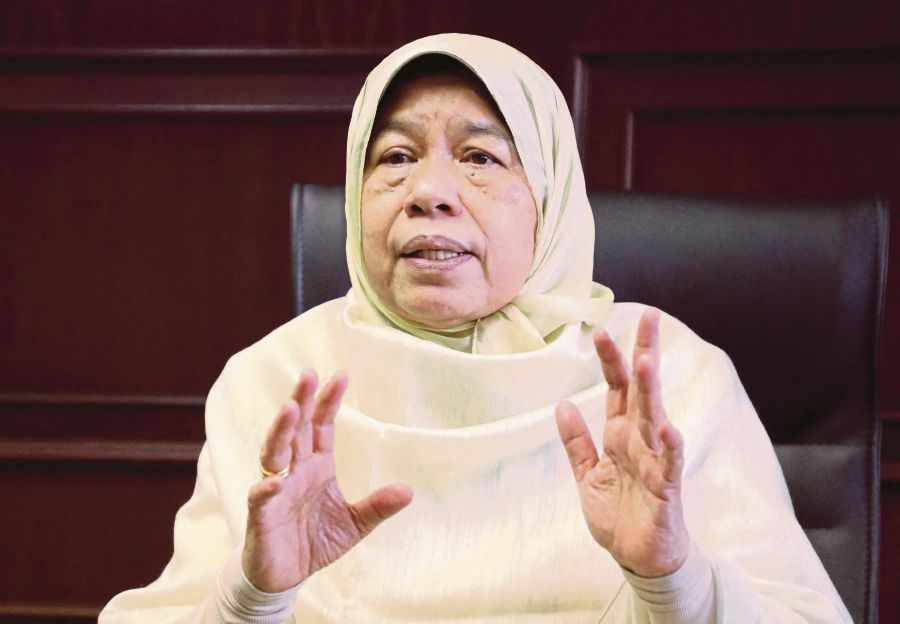
KUALA LUMPUR: Former PKR vice-president Datuk Zuraida Kamaruddin was ordered to pay RM10 million to PKR for breaching a bond binding her to the party.
High Court Judge Datuk Akhtar Tahir, in his judgment, said the bond was valid and Zuraida's allegation in this suit was an afterthought.
"The defendant herself had acknowledged that the plaintiff had spent an amount exceeding RM10 million on her candidacy during the election.
"This is a clear admission on the part of the defendant that she cannot retract.
"The bond was aimed to deter the party's candidates from acting against the interest of the party before or after an election," he said.
He said evidence during the trial showed that Zuraida signed the bond with full knowledge of the contents.
The former Ampang member of Parliament was also ordered to pay RM50,000 in cost to PKR.
Earlier, Zuraida in her defence claimed that she was forced to sign the bond with the party to become its candidate in the 14th General Election (GE14) in 2018.
Zuraida said she received the document from the party's leadership a day before nomination day and did not have ample time to read the entire content.
"I was told that I need to put my signature on the documents to allow me to contest under PKR. I do not have the opportunity to read the content of the document I signed.
"I have been forced to sign certain documents against my will, without being given genuine choice," she said.
She alleged that the party unilaterally prepared the document, and all candidates who contested under it were compelled to sign without any other options.
The suit was filed by PKR secretary-general Datuk Seri Saifuddin Nasution Ismail on behalf of the party via Messrs William Leong & Co on Sept 28.
Saifuddin, when testifying as a witness in the suit, said the defendant signed a party bond without any force or pressure.
He said Zuraida did not raise any objection when she was asked to do so as a requirement for candidates to contest under the party's ticket.
In the statement of claim, Saifuddin said Zuraida had executed a bond that bound her to pay the party the sum in accordance with the terms and conditions set under the bond.
The terms include, among others, that Zuraida agrees to pay the party a sum of RM10 million not later than seven days upon winning the election on the PKR ticket and then resigning from the party or joining any other political party or becoming an independent elected representative.
Saifuddin claimed that on Feb 24, Zuraida had announced her resignation from the party through a statement with 10 other PKR Members of Parliament (MPs) without stepping down from her elected post of Ampang MP.
He said the defendant, together with Parti Pribumi Bersatu Malaysia (Bersatu) and then opposition parties, namely Barisan Nasional (BN), Parti Islam Se-Malaysia (Pas), Gabungan Parti Sarawak (GRS) and others formed a new bloc known as "Perikatan Nasional" (PN).
This, he claimed, had caused the fall of the Pakatan Harapan federal government and when PN took over, Zuraida was appointed as a minister in the PN federal government.
On the same day, the PKR central leadership council approved a resolution to terminate Zuraida's membership from the party with immediate effect, with Saifuddin as the party's secretary-general issuing a certificate dated July 24, confirming the termination.
PKR claimed that it had, through its legal representatives, issued a letter of demand dated Aug 7 requiring Zuraida to pay the sum of RM10 million in accordance with the terms of the bond.
Saifuddin claimed that the defendant had failed, refused and neglected to pay the sum which the party was entitled to claim.
He said the defendant has enjoyed the benefits of being
elected as the party's candidate and winning the Ampang parliamentary
seat and it was therefore unjust for her to retain the benefits without
paying compensation for such marks and support she received.- NST, 23/6/2023
PKR state polls candidates must sign bond, says Rafizi
Applications to be a PKR candidate for the elections in six states open today.

He said those interested in running for elections on the party ticket in the six states could submit their papers online until 5pm on July 10.
“Applicants must be PKR members, aged 18 and above. They must be confirmed by the insolvency department as being not bankrupt.
“They must not have a criminal record, must be ready to declare their assets and must sign a party bond as a PKR elected representative.
“PKR has already started a democratic, transparent and objective process of selecting candidates,” he said in a statement.
Rafizi said the party’s various wings, divisions and branches could also nominate candidates, and these would be considered by PKR’s central election committee.
“The screening process will be performed by a candidate selection committee chaired by me as the election director. It will comprise all seven PKR vice-presidents.
“As enshrined in the party’s constitution, the power to select candidates is left to the PKR president.
“So, the committee will filter and shortlist the three best candidates (for each seat) for the president to make the final decision.”
Last month, the Kuala Lumpur High Court ordered former PKR vice-president Zuraida Kamaruddin to pay RM10 million in damages for breaching a party bond she had signed six years ago.
Justice Akhtar Tahir said under the terms of the bond, Zuraida had promised to pay RM10 million in any of three events, including if PKR terminated her membership or if she resigned.
PKR, through its secretary-general Saifuddin Nasution Ismail, had filed a suit in 2020 against Zuraida, claiming she had breached the contractual bond by joining Bersatu following the Sheraton Move in late February 2020.





